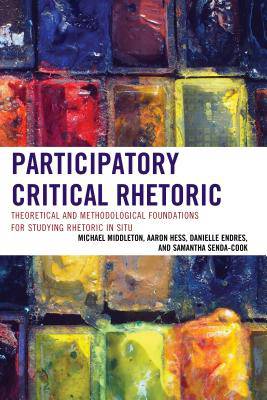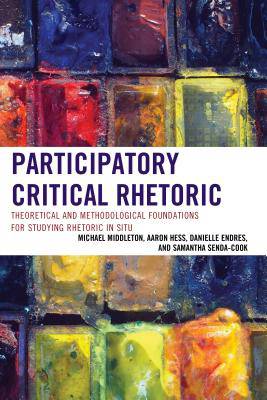
- Retrait gratuit dans votre magasin Club
- 7.000.000 titres dans notre catalogue
- Payer en toute sécurité
- Toujours un magasin près de chez vous
- Retrait gratuit dans votre magasin Club
- 7.000.0000 titres dans notre catalogue
- Payer en toute sécurité
- Toujours un magasin près de chez vous
Participatory Critical Rhetoric
Theoretical and Methodological Foundations for Studying Rhetoric In Situ
Michael Middleton, Aaron Hess, Danielle Endres
Livre relié | Anglais
184,95 €
+ 369 points
Format
Description
Participatory Critical Rhetoric: Theoretical and Methodological Foundations for Studying Rhetoric In Situ examines the increasing use of field methods using a programmatic theoretical and methodological approach.
Spécifications
Parties prenantes
- Auteur(s) :
- Editeur:
Contenu
- Nombre de pages :
- 240
- Langue:
- Anglais
Caractéristiques
- EAN:
- 9781498513807
- Date de parution :
- 16-12-15
- Format:
- Livre relié
- Format numérique:
- Genaaid
- Dimensions :
- 152 mm x 231 mm
- Poids :
- 521 g

Les avis
Nous publions uniquement les avis qui respectent les conditions requises. Consultez nos conditions pour les avis.






